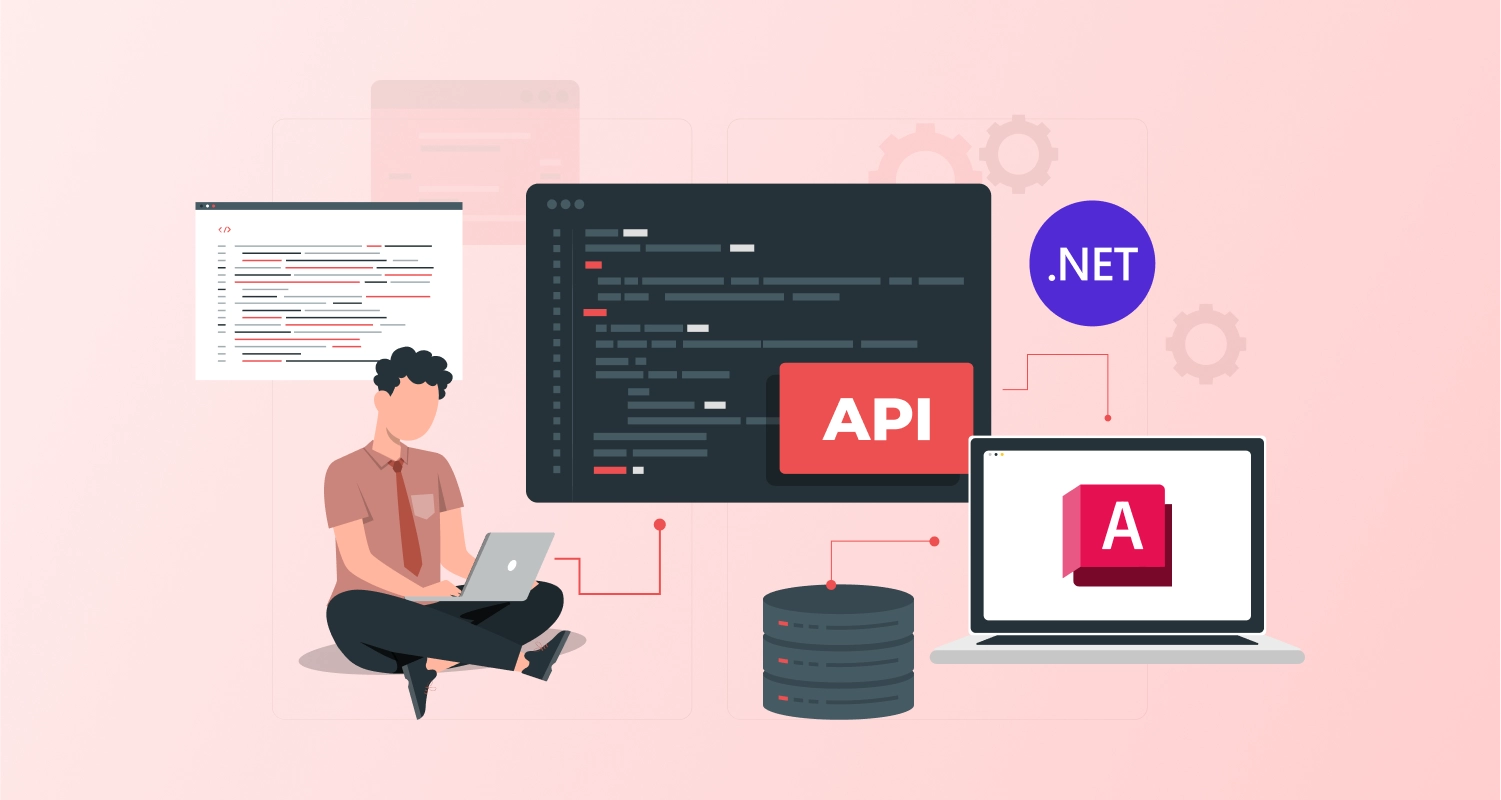You can visualize your website and have a brief idea about how it’s going to display contents and allow users to interact. You want to build a dynamic website that can easily accommodate new contents and can adjust to various changes. On top of that, you need to deliver a very effortless user experience that helps users to engage instantly. All of these requires the handiwork of an expert web development company, not amateurish efforts as common in many Do-it-Yourself blogs.
But before hiring developers or a development company, you should have a clear idea of the technology requirements. Whether you need to stick to age-old PHP development or use any MVC framework or use any other language or JavaScript framework, it depends upon your specific web development needs. You can choose a robust and comprehensive CMS with all the features or just you can opt for a server-side MVC framework. It depends upon your content needs and the functionalities.
In any case, you want to build a modern website with fast loading time, non-vulnerable security features, sophisticated look and feel and engaging user experience. To ensure all such qualities you need to choose your technology stack carefully. Deciding about the right technology will have the following positive implications on a website.
- By choosing the technology stack you can make a better assessment of the budget of your development project. This will boost transparency in the process.
- By choosing the right technology the development process gets faster and shorter time to market is ensured.
- This also helps to reduce the instances of faulty code lines and bugs as developers need to put fewer efforts.
- Finally, the project is more capable to deliver up to its set objectives.
Key Steps To Choose The Right Technology For Your Development Project
As far as making choices for your technology is concerned, there are no straightforward rules. While a seasoned developer can easily have a premonition of the technology required for a particular project, others may need expert help in deciding about the same. Let us mention here the key steps in choosing the right technology stack for a development project.
Understanding The Precise Project Requirements
At this stage, you need to communicate with the client and know the precise development needs for your app. Here are the key questions that you need to ask and seek answers for.
- Communicate to the clients and know the objectives of the app development project.
- Know what business objectives the client is trying to fulfil through this development effort.
- Know the challenges and pain-points that the app is going to address.
Modules for the project requirements as per business logic
Now that you have a solid grasp over project requirements, you can now break them down into categories and modules on the basis of business objective and business logic. Secondly, come with a detailed design diagram that displays the relationship between the modules.
Know the solution type you are trying to build
Now that the project requirements have been assessed and you have a design diagram in place explaining the relationship among the modules, you need to determine the gross character of your solution based on the core module in use.
This can be done by abstracting the components and describing each of them with a befitting word. This practice will easily help you know the kind of solution you need. For example, if your project needs principally concern transactions and marketplace, the required solution is likely to be eCommerce. If the project needs mainly concern content delivery, the solution type is likely to be a CMS.
Research on the required technology stack
Now that you have a clear idea of the required solution, you can research the most credible technologies in relation to the respective solutions. You can now try to find the most popular and effective technologies and their respective pros and cons for each type of solution. For example, for a website focused on the content publication you can find dozens of CMS solutions and you can conduct research the pros and cons for each of them. When the required technologies are known, the development challenges and coding complexity can be reduced drastically.
Modern JavaScript
JavaScript has always been a powerful web development language. But using JavaScript has never been easier. This is why the JavaScript frameworks are popular and they can help to build websites with minimum knowledge of the language. While there are several popular and rich JavaScript frameworks, a handful of them stands out in terms of delivering great user experience.
Here are the 3 best JavaScript frameworks for building feature-rich and powerful websites
1. AngularJS
Angular having started its journey way back in 2009 has evolved through several updates and at present is the most matured JavaScript framework. Maintained by Google it enjoys the support of the largest community of developers. It is a highly modular framework and supports building very complex and robust applications. The only downside is, it has a much higher learning curve because of the complex syntax on the TypeScript language. But when Angular developers need to deliver a complex and multifaceted application with superior performance attribute, the power of AngularJS stands out.
2. ReactJS
React was originally created and made available as an open-source framework by Facebook way back in 2013. The main reason for its popularity is its component-based architecture offering a very low learning curve. It implements the components through the JSX syntax which is a variable coding script sharing attributes of both JavaScript and HTML. ReactJS also became popular because of the exceptional ease of knowing the primary architecture.
Moreover, one can easily include the framework as a JavaScript library in a website. The framework having the power of Facebook also boasts of a huge global developer community. There is also an offshoot of ReactJS called React Native which is popularly used for building native mobile apps.
3. VueJS
VueJS is the newest entry among the most popular JavaScript frameworks and ever since it started its journey in 2014, it experienced a huge backing from developer community worldwide thanks to its lightweight architecture, detailed documentation and easy integration. The components of VueJS are built with simple HTML language and this makes the framework very easier for any developer trying his hand with JavaScript.
How to Choose the Perfect Back-End Technology?
For building the most sophisticated web app, a development company also has to consider the available programming languages. The company has to measure the strengths and weaknesses of various programming languages and the available technical expertise of the company.
Here we will focus upon a few popular and widely used languages having robust community support, a rich set of features and characteristics that fit into modern web development needs.
ASP.NET
Microsoft ASP.NET is the most popular and widely used framework across business applications running on the Windows operating system. Apart from a very few open standard parts like the C# and few other .NET parts, this framework is mostly a closed one under complete control of Microsoft. Moreover, it offers the flexibility of using preferred languages by running on the virtual platform referred to as the Common Language Infrastructure or CLI. There are several .Net languages that ASP.NET developers can use including C#, JScript.Net, VB.Net, Python, Ruby and several others.
ASP.NET remained as the most popular programming language for enterprise systems that demand more protection from security vulnerabilities and glitch-free performance. It is also the most preferred cross-platform technology for building Windows mobile applications besides developing apps for other platforms and the web.
PHP
PHP is by far the most popular programming language that has been widely used for the majority of CMS platforms and websites of all types and niches. PHP as a language boasts of a really expansive ecosystem of frameworks, libraries and third-party extensions and enjoys the support of millions of web developers worldwide.
The only downside is that it doesn’t offer any definitive development guideline. Though, the worldwide developer community working with PHP through various CMS platforms and libraries can also offer active help. The core strength of the language is its ease of use and this makes it popular for the majority of web applications and platforms including WordPress, Facebook, Flickr and many others.
Python
Python gained quick popularity as a programming language because of its strict code standards, easy to read the code and a very powerful library that takes care of every aspect of development. It is also a highly dynamic language with automatic and powerful memory management capability. Python offers great scalability across stateless servers and this is why cloud applications find Python so effective. Python offers several popular frameworks as well including Django which is used by popular web applications such as Pinterest, Instagram, and Eventbrite.
Ruby
Ruby is an object-oriented programming language used for building dynamic websites and web apps. Like Python, it also boasts of automatic memory management capability. Ruby is also the language that comes packed with an overwhelming number of libraries and frameworks. The language at present offers more than 60,000 libraries along with a very active community of developers.
Java
Java is the most widely used class-based and object-oriented programming language which was built with the ‘write once and run everywhere’ philosophy. Thanks to worldwide popularity and adoption across a variety of enterprise systems Java boasts of a very powerful range of documentation, libraries and frameworks geared for building complex, multilayered and security savvy applications. As Java is the core language for Android, it should always be considered as an important language for building an app on Android.
Conclusion
web app development company can choose the technology stack for a development project without prior consideration of its technical expertise. A great development company always have a very balanced team of developers spread across key skill sets and programming expertise. In fact, a development company ends up offering a higher quote than the industry standard if it needs to hire developers from outside to fulfil key requirements.
Do you want to consult our experts about your development needs? Do you want a detailed guidance regarding the suitable technology stack for your products? Just feel free to drop us a message and give us a call and we will respond to your queries at the earliest.







